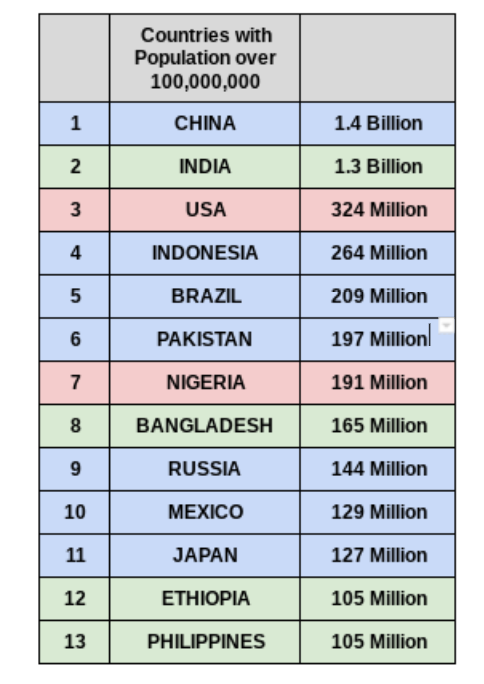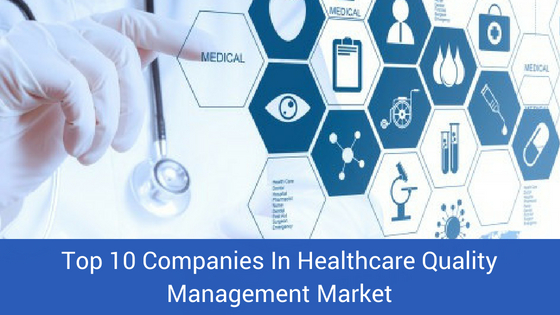Their health care advantages consist of medical facility care, medical care, prescription drugs, and standard Chinese medication. But not everything is covered, including expensive treatments for rare diseases. Clients need to make copays when they see a doctor, check out the ED, or fill a prescription, however the cost is usually less than about $12, and varies based upon patient earnings.
Still, it may spread physicians too thin, Vox reports: In Taiwan, the typical number of doctor visits annually is presently 12.1, which is almost two times the number of check outs in other developed economies. In addition, there are only about 1.7 physicians for each 1,000 patientsbelow the average of 3.3 in other industrialized countries.
As a result, Taiwanese doctors usually work about 10 more hours per week than U.S. physicians. Doctor payment can likewise be a problem, Scott reports. One physician said the demanding nature of his pediatric practice led him to practice cosmetic medicinewhich is more financially rewarding and paid independently by patientson the side, Vox reports.
For circumstances, clients note they experience hold-ups in accessing brand-new medical treatments under the country's health system. Often, Taiwanese patients wait five years longer than U.S. clients to access the current treatments. Taiwan's rating on the HAQ Index shows the marked improvement in health outcomes amongst Taiwanese residents given that the single-payer design's execution.
But while Taiwanese residents are living longer, the system's effect on physicians and growing costs presents difficulties and raises concerns about the system's financial substantiality, Scott reports. The U.K. health system provides healthcare through single-payer design that is both funded and run by the federal government. The outcome, as Vox's Ezra Klein reports, is a system in which "rationing isn't a filthy word." The U.K.'s system is moneyed through taxes and administered through the (NHS), which was established in 1948.
created the (GREAT) to determine the cost-effectiveness of treatments NHS considers covering. NICE makes its protection choices using a metric known as the QALY, which is short for quality-adjusted life years. Typically, treatments with a QALY listed below $26,000 per year will get NICE's approval for protection - what might happen if the federal government makes cuts to health care spending?. The choice Browse this site is less particular for treatments where a QALY is between $26,000 and $40,000, and drugs with a QALY above $40,000 are not likely to get approval, according to Klein.
NICE has actually dealt with particular criticism over its approval process for brand-new expensive cancer drugs, leading to the facility of a public fund to http://lanemvmu811.tearosediner.net/getting-the-how-to-market-home-health-care-services-to-work help cover the expense of these drugs. U.K. Addiction Treatment Center homeowners covered by NHS do not pay premiums and rather contribute to the health system through taxes. Patients can acquire additional personal insurance, however they seldom do so: Only about 10% of residents purchase private coverage, Klein reports.
The Basic Principles Of How Much Does Medicare Pay For In Home Health Care
locals are less most likely to avoid necessary care because of costswith 33% of U.S. residents reporting they have actually done so, while just 7% of U.K. locals said they did the same. However that's not state U.K. citizens do not face difficulties getting a medical professional's appointment. U.K. citizens are three times as most likely as Americans to state that had to wait over three months for a specialist visit.

concerning NICE's handling of specific cancer drugs. According to Klein, "reaction to NICE's rejections [of the cancer drugs] and slow-moving procedure" resulted in the production of a different public fund to cover cancer drugs that NICE hasn't authorized or examined. The U.K. scores 90.5 on HAQ index, higher than the United States however lower than Australia.
system is "underfunded," research study has actually shown that citizens mostly support the system." [GREAT] has actually made the UK system uniquely centralized, transparent, and equitable," Klein composes. "But it is constructed on a faith in government, and a political and social uniformity, that is tough to envision in the United States."( Scott, Vox, 1/15; Scott, Vox, 1/17; Scott, Vox, 1/13; Scott, Vox, 1/29; Klein, Vox, 1/28; The Lancet, accessed 2/13).

Naresh Tinani enjoys his job as a perfusionist at a health center in Saskatchewan's capital. To him, keeping an eye on patient blood levels, heart beat and body temperature during heart surgical treatments and extensive care is a "advantage" "the supreme interaction in between human physiology and the mechanics of engineering." However Tinani has likewise been on the other side of the system, like when his now-15-year-old twin children were born 10 weeks early and battled infection on life support, or as his 78-year-old mother waits months for brand-new knees amidst the coronavirus pandemic.
He's happy due to the fact that throughout times of true emergency, he said the system took care of his family without including cost and price to his list of worries. And on that point, couple of Americans can state the same. Prior to the coronavirus pandemic struck the U.S. full speed, fewer than half of Americans 42 percent considered their healthcare system to be above average, according to a PBS NewsHour/Marist survey performed in late July.
Compared to individuals in most developed nations, including Canada, Americans have for years paid much more for healthcare while remaining sicker and dying earlier. In the United States, unlike many nations in the developed world, health insurance coverage is typically tied to whether you work. More than 160 million Americans count on their companies for medical insurance before COVID-19, while another 30 million Americans were without health insurance before the pandemic.
Numbers are still shaking out, however one forecast from the Urban Institute and the Robert Wood Johnson Structure suggested as numerous as 25 million more Americans became uninsured in current months. That research study recommended that millions of Americans will fall through the fractures and may fail to enroll for Medicaid, the country's safety net health care program, which covered 75 million individuals prior to the pandemic.
The 25-Second Trick For How Much Does Universal Health Care Cost
Test just how much you understand with this quiz. When people dispute how to repair the damaged U.S. system (an especially typical discussion throughout presidential election years), Canada inevitably turns up both as an example the U.S. should appreciate and as one it ought to prevent. Throughout the 2020 Democratic main season, Sen.
health care system, pitching his own variation called "Medicare for All." Sanders leaving of the race in April fueled speculation that Biden might embrace a more progressive platform, including on health care, to woo Sanders' diehard advocates. Every health care system has its strengths and weaknesses, consisting of Canada's. Here's how that country's system works, why it's admired (and in some cases disparaged) by some in the U.S., and why results in the 2 nations have been so various throughout the COVID-19 pandemic.
In 1944, voters in the rural province of Saskatchewan, hard-hit during the Great Depression, chose a democratic socialist government after politicians had campaigned for a fundamental right to healthcare. At the time, people felt "that the system simply wasn't working" and they wanted to attempt something different, said Greg Marchildon, a healthcare historian who teaches health policy and systems at the University of Toronto.
The change was consulted with pushback. On July 1, 1962, doctors staged a 23-day strike in the provincial capital of Regina to protest universal health coverage. But ultimately, the program "had actually become popular enough that it would end up being too politically damaging to take it away," Marchildon stated. Other provinces took notification.